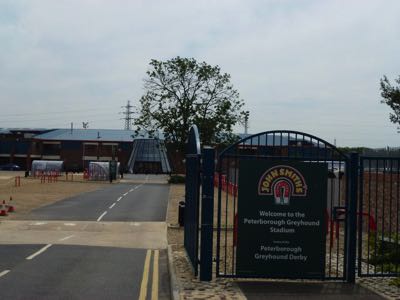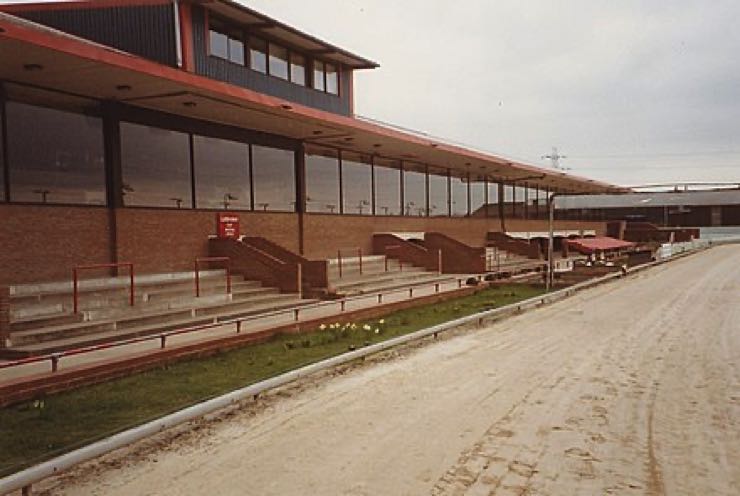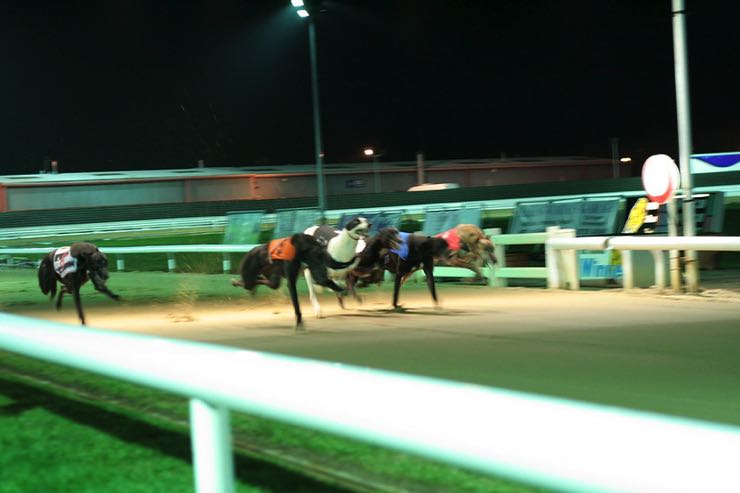
The British mainland currently boasts a total of 20 officially licenced greyhound stadiums (at the time of writing – but things change quickly in the world of dogs at the moment!). That is some way below the heyday of the 1940s, but still offers up a decent spread of tracks across the country. Recent years have, for fairly obvious reasons, proved particularly tough for an industry which relies upon getting paying customers through the door, resulting in a higher than usual rate of closures.
In addition to the tracks that have officially closed and are set to be replaced by accommodation sites or commercial ventures, there are also a small number of currently shut stadiums which may yet reopen. The likelihood of that occurring very much depends upon the particular track. Edging ever closer to the “highly unlikely to return” category is the stadium based in the Fengate region of Peterborough. First opened for business back in 1931, the track remained a prominent part of the local community until running into problems in 2020.
Former Greyhound Racing at Peterborough

The track was first opened in 1931 by the Peterborough Racing Club, in an area known as the Liberty of Peterborough which consisted of approximately 30 parishes. Situated just off the Fengate Road, only around 10 minutes from Peterborough City Centre, the track boasted a far from glamourous location, being sited just to the north of the Peterborough Sewage Pumping Station.
The first meeting held on 4th April, 1931 was a distinctly low-key affair, with few facilities to speak of, and the hare being propelled around the circuit by two men on bicycles. Ah, the good old days! In addition to the greyhounds, the track also staged whippet racing in the early years, with a capacity crowd of 700 showing up for the most popular meetings.
Racing continued up until the onset of WWII, at which point the track closed until the global conflict drew to an end. Upon reopening, the site was purchased by local businessmen Reg Perkins and George Ellingworth. The duo’s investment in upgrading the facilities at the site proved to be well timed, coming almost in synch with what was to prove a major boom time for the sport during the post-war years.
Back When It Was Boomin’
The business was soon showing the benefits of those improved facilities and the increasing trade, with the track boasting an impressive tote turnover of £49,719 in 1947. A blow was soon to come though, with the death of George Ellingworth, leaving Reg Perkins in sole control.
Despite maintaining its status as an independent track, the venue continued to progress; the 1960s seeing the addition of two bars, fast food facilities, photo finish technology and an increasing number of on-course bookmakers. Things were certainly looking positive for the course at this stage, and indeed the sport more generally.
Debut of the Peterborough Derby
Reg Perkins entered retirement in 1977, passing on control of the stadium to his sons Rex and David. Now boasting nine on-course bookmakers, the track finally gained official status when signing a deal with the National Greyhound Racing Council in 1982. Just one year later in 1983, the signature event of the Peterborough Derby made its debut.
A high-profile figure in the area, Rex Perkins, was elected Mayor of Peterborough in 1987. Just one year later the track received its most substantial upgrade to date, with £500,000 pumped into a new glass-fronted grandstand and the 200-capacity Raceview Restaurant.
The Fire of 1999
Now firmly established as a professional track, the stadium was dealt a major blow on the 24th of March, 1999 when a fire decimated two of the bars and a 250-seat section of the grandstand. A six-month closure ensued as the track was repaired before reopening or business on the 21st of September.
Following the death of Rex Perkins in 2003, his sons, Richard and Rob, took charge. Keen to honour their father’s legacy, the brothers named a new £3m extension to the grandstand in his honour. Now boasting 1,000 seats and additional corporate box facilities, Peterborough Stadium was recognised as a thoroughly modern venue and was genuinely thriving.
Arena Racing Company Takes Over
In 2008, Peterborough dropped its regular Tuesday evening fixture, but this loss was more than offset with the signing of a Bookmakers Afternoon Greyhound Service (BAGS) contract in 2012, and a deal with the Arena Racing Company in 2018. Despite that stable footing, much like many venues in the UK, Peterborough Greyhound Stadium would find itself unable to cope with the events of 2020.
What Happened to Peterborough Greyhound Stadium?

In common with all greyhound stadiums in the country, Peterborough was forced to close during the national lockdowns resulting from 2020’s global health crisis. However, whilst the majority of tracks reopened on a “behind closed doors” basis on the 18th of May, 2020, Peterborough did not. A statement from the track declaring that, before reopening, they needed to seek clarification from the Greyhound Board of Great Britain (GBGB), specifically regarding the venue’s ability to function without paying customers coming through the doors.
Seemingly unsatisfied with the response from GBGB, the track announced that it would be closing permanently on the 20th of May, 2020, marking an end to 80 years of largely successful operation. As an exclusively evening racing venue, the track’s business model placed a huge emphasis on food, drink and betting spend at the track; with no punters coming through the turnstiles that model became unsustainable.
Will Peterborough Reopen?
The overwhelming consensus appears that it will not – at least not as a greyhound racing venue. On the 10th of May, 2021, the Perkins family sold the site to Fengate Land Holdings for an undisclosed fee. With the new owners being predominantly associated with new building developments, it seemed likely that the site would be repurposed as a housing or retail venture.
However, it seems that may not turn out to be the case. The previous owner, Richard Perkins, is reportedly involved in establishing the future plans for the stadium, and whilst a return of the greyhound action is still unlikely, he hasn’t ruled it out entirely.
Plans put to the council in 2021 would nevertheless suggest that greyhound racing may be some way down the list of priorities. In a request to change the stadium’s name to just “Peterborough Stadium”, the likes of wrestling, boxing, films, live music and big screen sport were listed as potential uses for the site, but no sign of the sport upon which the stadium is built.